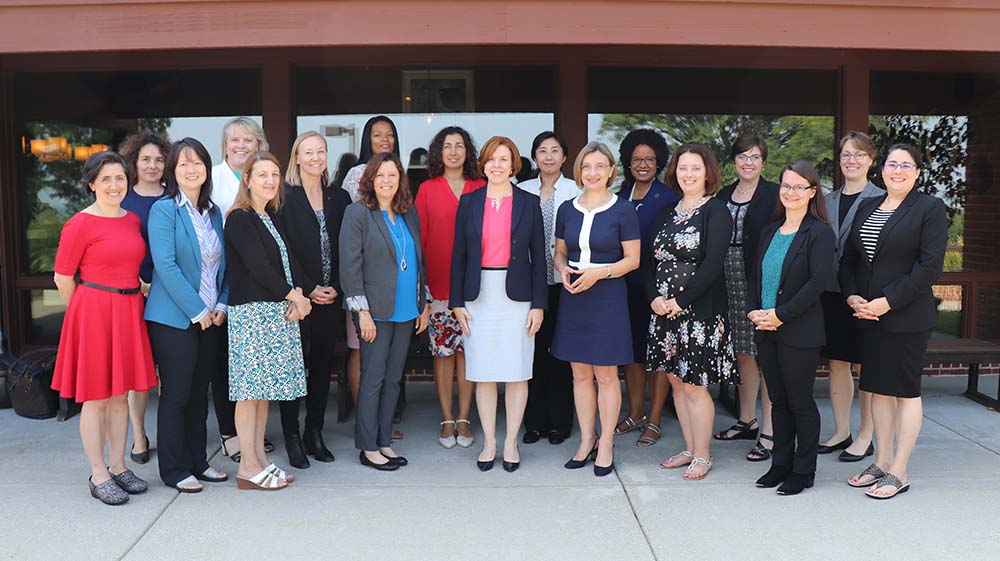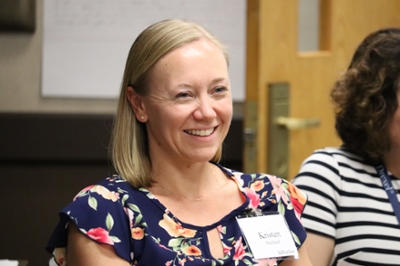
Dr. Kristen Maitland, associate professor in the Department of Biomedical Engineering at Texas A&M University, has been accepted into the competitive, year-long Executive Leadership in Academic Technology and Engineering (ELATE) at Drexel® program.
The elite program accepted 18 women from across the nation and Canada into the 2018-19 class who are leaders in biotechnology, chemistry, engineering and health science. Each was nominated by her dean or provost and will contribute to institutional initiatives as she expands her leadership skills.
Maitland’s research is focused on the use of photonic technologies for detection, diagnosis and treatment of disease. Her research team has developed handheld multimodal imaging and diagnostic systems for applications, including bacterial infection and cancer.

As an ELATE fellow, Maitland said she has set some personal goals for her time in the program, including expanding her leadership skills and effectiveness.
“I want to improve my understanding of the financial and administrative structure of Texas A&M University and how my area of influence fits within the organizational goals and strategic vision of the university,” she said.
Maitland served previously in different leadership roles in the department, including associate department head and director of graduate programs. She recently took a university-wide leadership role as director of the Texas A&M Microscopy and Imaging Center, a core facility where she is responsible for managerial and technical leadership.
“This program will train me to better understand administration, budgeting and strategic plans for the university,” Maitland said.
Along with online assignments and an onsite project, Maitland will travel to meet with the other fellows three times over the next year at Drexel University in Pennsylvania.
“The value of participation in an external leadership program is that you gain an outside perspective about leadership and develop a community of diverse academic leaders from across the nation,” Maitland said.
As part of the program, each fellow must plan and complete an institutional action project to address issues beyond their specialty. The goal is to collaborate with the dean, provost and/or other senior executive mentors to deepen the fellow’s understanding of new knowledge and skills gained through the fellowship while addressing a need on campus.
Maitland said she plans to focus her project on imaging throughout the university, integrating research and core facilities.
“Texas A&M has fantastic imaging capability,” she said. “We have significant potential to fulfill imaging needs, increase capacity, bring together imaging users with technology developers, and enhance synergy between imaging and data science.”